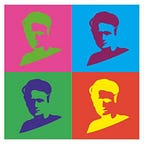Engaging kids in Science
The MCAA has initiated a series of webinars that run each second Friday of the month starting from December 2021. The aim is to provide educational webinars to the MCAA members and non-members as a way to thank for the support received all these years. The webinars are co-organised by the Communication WG in collaboration with a different MCAA Chapter or Working Group each month and cover a variety of topics.
In the seventh episode, organized in collaboration with the Poland Chapter, the focus was set on a very important topic: Engaging kids in Science.
It is important to notice and nurture the affinity for science in kids, starting from a very young age. To help us contribute to shaping the next generation of scientists, two inspiring speakers were invited: Karla Valenti (Author of fiction and children’s books, including the ‘My Super Science Heroes’ series) and Agata Goździk (Geophysicist, educator and science communicator, Head of the Science Communication and Education Department in the Institute of Geophysics Polish Academy of Sciences).
Here we will summarize the highlights of the 7th Episode of the MCAA Around the World Webinar Series, which can also be watched on YouTube.
Different disciplines have to be combined in order to reach children in a unique and exciting way. For example, engaging very young kids with storytelling is an incredibly powerful tool. Karla Valenti used her storytelling expertise to develop “My Super Science Heroes” series, where super heroes were actually well-known scientists and their superpowers was their urge to expand their knowledge, using the traits such as curiosity and persistence.
The aim of this series is to help children to recognize and emphasise those traits in themselves. Each book focuses on one of those traits and how they played a crucial role in the life of known scientist to make life-changing discoveries. Super hero concept is very appealing to kids and recognizing those superpowers in themselves can inspire and motivate young minds to pursue their life goals.
Like in every story, there are also nemesis that challenge the super heroes from the beginning. These are obstacles that we all face during our life, which could be: lack of financial sources, discrimination, and/or difficulties to access the education. Here comes the powerful message from these series:
how one can deal with the nemesis, live with those obstacles and use them for the self-improvement.
“My Super Science Heroes” series format is easily relatable, readily accessible, fun and engaging. The series already reached hundred of readers around the world, and if you are interested to know more about it, check them out here: https://mysuperscienceheroes.com .
Furthermore, you can obtain free 40-page Experiment guide on Karla’s webpage: https://karlavalenti.com/wp-content/uploads/2020/03/Experiment-guide.pdf.
Agata Goździk spoke about the next step — focusing on older children, where it is highly important to bridge the gap between schools and science. This makes the collaboration with schools crucial to tackle the interest of young generations. To do that, teachers are playing the key role in connecting the researchers and young students, and they are the first to be on board.
Therefore, there have been a lot of efforts in making the network for teachers and educators, organizing the trainings for them, and providing online lessons. Agata introduced the main aims of BRITEC Project, that conducts variety of different initiatives to bring the research into the classroom. BRITEC aims were to support the exchange between schools and research institutions, train the teachers and organize local initiatives.
BRITEC proposes introducing the Citizen Science (CS) approach in schools as a way of engaging pupils in research practices. CS approach has a big potential in this context, especially if used in a form of “co-created”, where the collaboration is formed between students, teachers and researchers. In this case, scientist propose a research project, which is the conducted by students that are making the observations and performing the measurements (for example, monitoring seasonal changes in various rivers and channels). The teachers have the role to supervise students, collect the data, and provide them to researchers.
This type of collaboration brings significant benefits for all three parties. Students are exposed to all the steps of scientific inquiry and this helps them in understanding how science works. Also, the practical work helps them to learn faster. Teachers are developing skills not only to understand and filter the quality scientific data, but also how to motivate the students and facilitate the communication between students and researchers. Finally, for the researchers the benefit is to obtain large number of volunteers for performing their studies, to collaborate with local communities, and improve communication skills by presenting the research aims and result to the society. BRITEC webpage offers a lot of tips how to organize similar initiatives and engage the community to participate.
Author
Marina Pekmezovic, Member of MCAA Communication Working Group
Marina completed her PhD in Microbiology at the Leibniz Institute for Natural Product Research and Infection Biology (Germany) within the MSCA-ITN OPATHY. Apart from science, she is passionate about science communication, dancing, photography and traveling.
